What happens when the choices you’ve made in life go wrong? Who are you when you give up your dreams? These are some of the questions the quiet, contemplative drama Send Me to the Clouds explores.
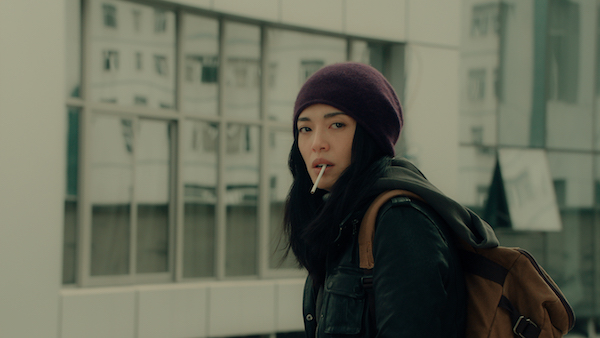
The feature debut of writer and director Teng Congcong, Send Me to the Clouds is a nuanced and rewarding film, one that looks at universal worries with humor and sympathy.
Director Teng Congcong’s script focuses on 29-year-old journalist Sheng Nan (Yao Chen) just as her world collapses. First seen tying a rural arson incident to a corrupt developer, she is soon the victim of consecutive assaults, both literal and figurative. A colleague tones down her article, then cheats her out of a byline. Her doctor tells her she has ovarian cancer, and demands a fortune for the surgery. She asks her nearly bankrupt dad for help, but he wants to borrow money from her.
Consumed with grandiose schemes, Si Mao (Li Jiuxiao) won’t lend Sheng money for her surgery because her survival prospects are so poor. (“Who will pay me back?” he asks.) But he does dangle a lucrative ghostwriting job. Li Ping (Liang Guanhua), the very developer Sheng set out to expose earlier, wants someone to write a biography of his father Li (Yang Xinming), an artist who has retired to a remote mountain resort.
Sheng is joined by her mother Meizhi (Wu Yufang), a scatterbrained flirt determined to “find my true self” with a lover, like her ex-husband did. After a journey by bus and boat through the mist-wreathed mountains of Guizhou, Meizhi connects unexpectedly with Li, an ascetic with hidden appetites. Sheng meanwhile is drawn to Liu Gangming (Yuan Hong), a dreamy philosopher who photographs clouds and muses about the meaning of life.
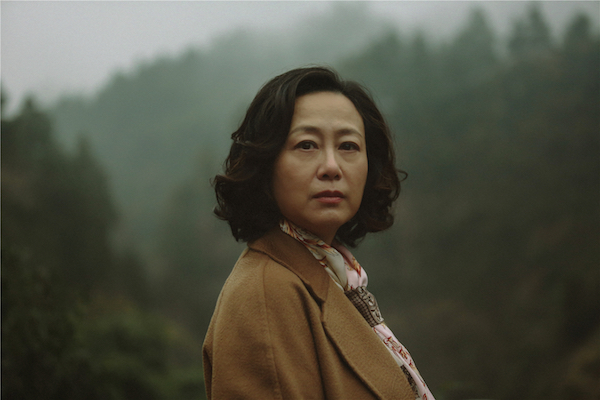
Teng sets up her characters for laughs—Meizhi nattering about moisturizing masks, Li complaining that his son is a “complete moron,” Li Ping mocking his son-in-law—but still treats them with respect. Meizhi turns out to be an expert on pottery glazes, as well as an enticing dancer. Si Mao may be obsessed with money, but he does what he can to help Sheng. Even the coarse, corrupt Li Ping has moments of genuine insight.
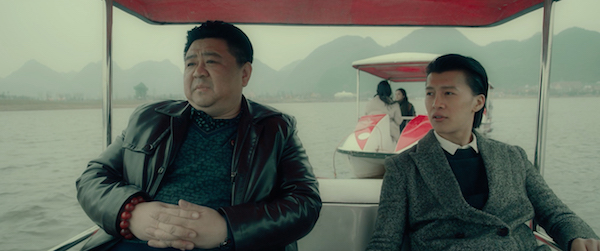
The script dances in and out of tragedy, punctuating melodramatic revelations with slapstick, giving characters extraordinary settings for their conflicts. Teng’s staging, combined with Jong Lin’s smooth cinematography, pulls viewers into intimate moments as characters reveal their flaws and fears.
Yao Chen is splendid, thoroughly embracing her difficult, at times off-putting character. Sheng Nan (“surpass men,” a name popular for Chinese girls in the 1980s) is a fighter, even when it might be better for her to be conciliatory. Rebellious, bitter, isolated, Sheng doesn’t know what to do next. And Yao plays her that way, deglamorized, antagonistic, defensive.
A superstar in Asia, where she has amassed some 80 million followers on social media, Yao became famous on television with roles as a spy and a martial artist on two hit series. She has starred in special effects blockbusters like Monster Hunt and Journey to the West 2, but it was her appearances in comedies and dramas that really drew the public to her.
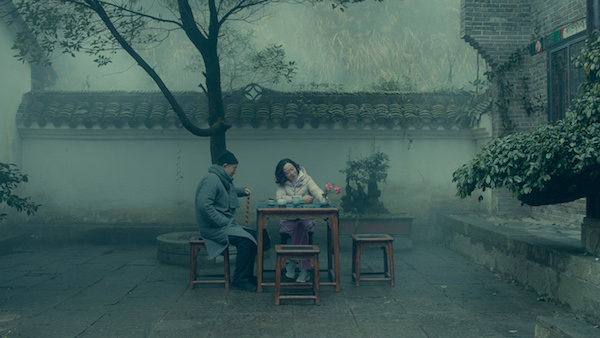
A pushy gold-digger in the romantic comedy Sophie’s Revenge, Yao threatened to steal the movie from putative star Zhang Ziyi. Yao was a fashion magazine editor in the romance Color Me Love, a journalist in the message drama Caught in the Web, a budding entrepreneur in MBA Partners.
Unlike Zhang Ziyi and Fan Bingbing, who specialized in ethereal roles, often in period costume, Yao seemed to be playing real-life characters. Women who were confident, grounded, able to handle themselves in a male-dominated society. To her fans, she was the ideal career woman, smart, hard-working, still ready to make fun of herself. And of course someone who was open to romance.
After Yao had a child in 2013, she complained that producers would no longer consider her for roles she used to play. So she formed her own production company, Bad Rabbit, while expanding her presence in fashion. She also re-examined the type of woman she portrayed, turning to darker, more complicated roles. In 2018’s Lost Found, Yao was a single mother who sacrificed her family for her legal career. She pays the price for her ambition when her young daughter is abducted.
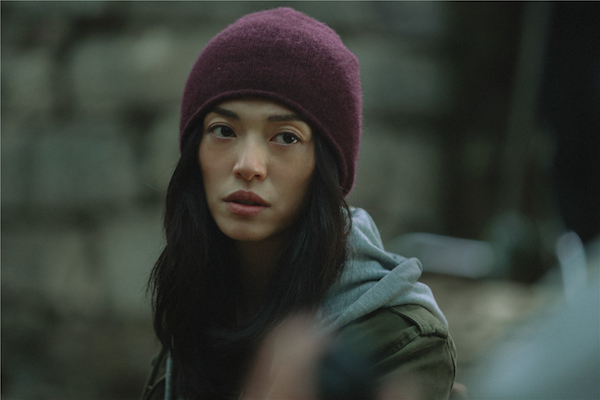
Effortlessly photogenic, Yao makes suffering something to treasure in Send Me to the Clouds. On the bus to Guizhou, the interplay of light and dark over her face is mesmerizing. Her wounded, sidelong glances when others give her advice, her rising anger when pushed into corners, her frustration with rules and civility and tradition show how deeply Yao has immersed herself in the role.
Previously an editor, Teng adds fresh perspectives to a familiar storyline. There’s a sense of contradictory impulses to her sex scenes, for example, the idea that Sheng can be simultaneously aroused and repulsed by her desires. The humiliation Sheng experiences when she is rejected, or when her body fails her, is rarely seen on the screen—at least not with this much compassion.
Send Me to the Clouds started out with a tiny, art-house budget. Yao’s presence (she is also credited as a producer) gave Teng the chance to make something a bit more ambitious. The result is a movie that, like Sheng, doesn’t always play the way you’d expect.


